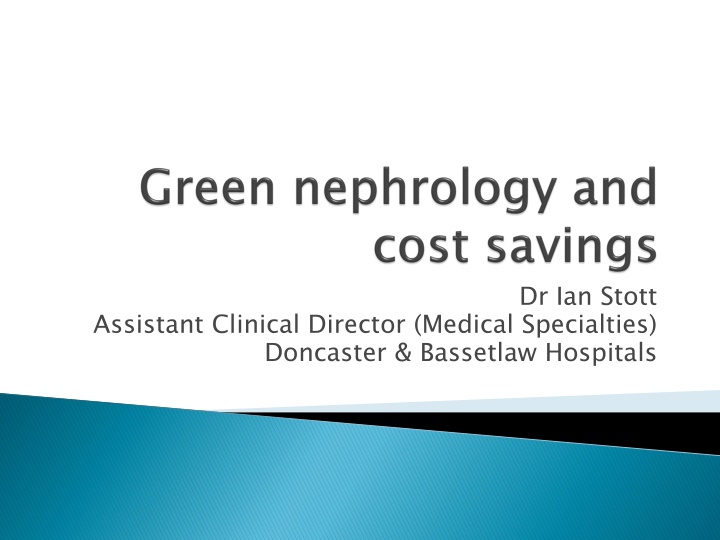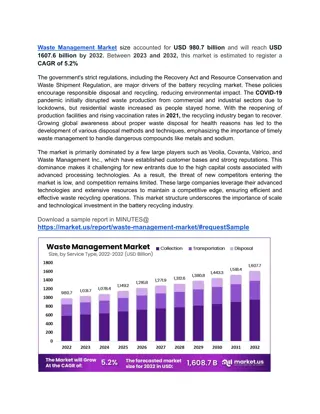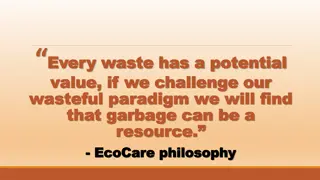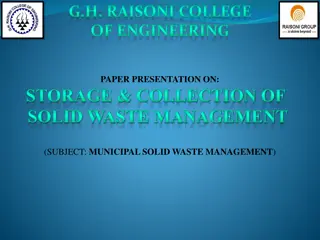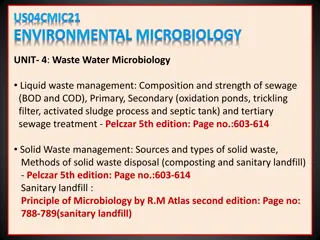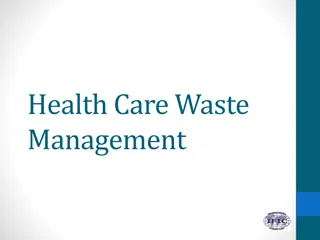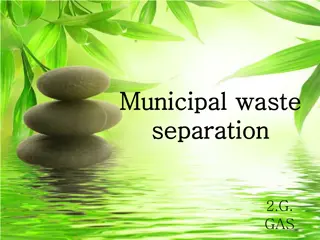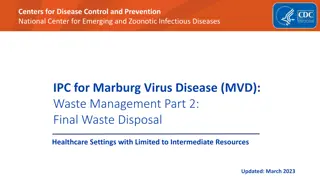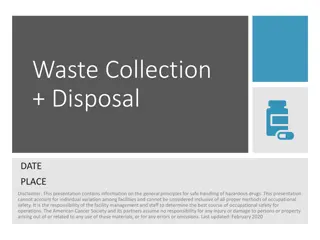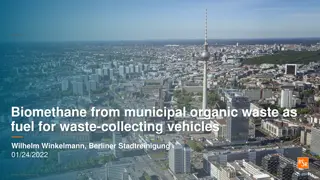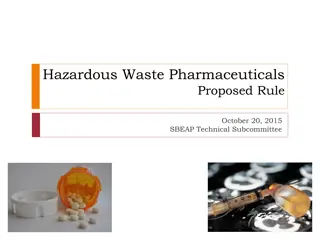Innovations in Sustainable Healthcare & Waste Management
Sustainable healthcare practices, including waste reduction, energy efficiency, and care optimization, are crucial for cost savings and environmental impact. Examples include improved waste management in healthcare units and pilot studies for efficient patient monitoring services. These initiatives have shown significant annual savings and potential for widespread adoption, leading to a more sustainable healthcare system.
Download Presentation

Please find below an Image/Link to download the presentation.
The content on the website is provided AS IS for your information and personal use only. It may not be sold, licensed, or shared on other websites without obtaining consent from the author.If you encounter any issues during the download, it is possible that the publisher has removed the file from their server.
You are allowed to download the files provided on this website for personal or commercial use, subject to the condition that they are used lawfully. All files are the property of their respective owners.
The content on the website is provided AS IS for your information and personal use only. It may not be sold, licensed, or shared on other websites without obtaining consent from the author.
E N D
Presentation Transcript
Dr Ian Stott Assistant Clinical Director (Medical Specialties) Doncaster & Bassetlaw Hospitals
Centre for Sustainable Healthcare The Renal Association British Renal Society NHS Kidney Care NHS Sustainable Development Unit National Kidney Federation Association of Renal Industries
Process innovations: Use less, waste less, reduce waste costs Infrastructure innovations: Energy and water efficiency Model of care innovations: Care close to home, reduce transport costs
Improved waste management in the Dialysis Unit Queen Margaret Hospital, Dunfermline Remove unnecessary consumables Waste segregation: Separate domestic waste from clinical waste Recycling: Separate out all recyclables Annual savings: 35718 (approx 96000 for an average unit)
Central Delivery of Acid for Haemodialysis (Bradford) Reduced wastage of acid Reduced packaging waste Reduced use of storage space and staff time Capital cost: 43900 Annual savings: 19,372 per year from reduced acid wastage; 3,700 from reduced waste disposal. Total: 23,072 per year.
Pilot Study of a Kidney Patient Results Monitoring Service: Cornwall Telephone review of patients with CKD 3/4 95 clinic visits avoided Cost to commissioners: 10000 Savings (OP tariff): 12160 (plus transport costs, 2 coming by helicopter!)
Existing projects have reported annual savings totalling 243,000 Scaled up across UK units (assuming 60% uptake for process, 30% for infrastructure) this equates to 7million per year, or 100,000 for an average sized unit.
NEWS NHS could save 1bn by adopting green strategies used in kidney units BMJ 2013; 346 doi: http://dx.doi.org/10.1136/bmj.f588 (Published 28 January 2013)
Support your green nephrology rep Look at the green nephrology case studies - http://sustainablehealthcare.org.uk/green- nephrology Use resources within your Trust (estates, sustainability officers) Consider investing some staff time in developing green projects it is likely to pay for itself many times over
